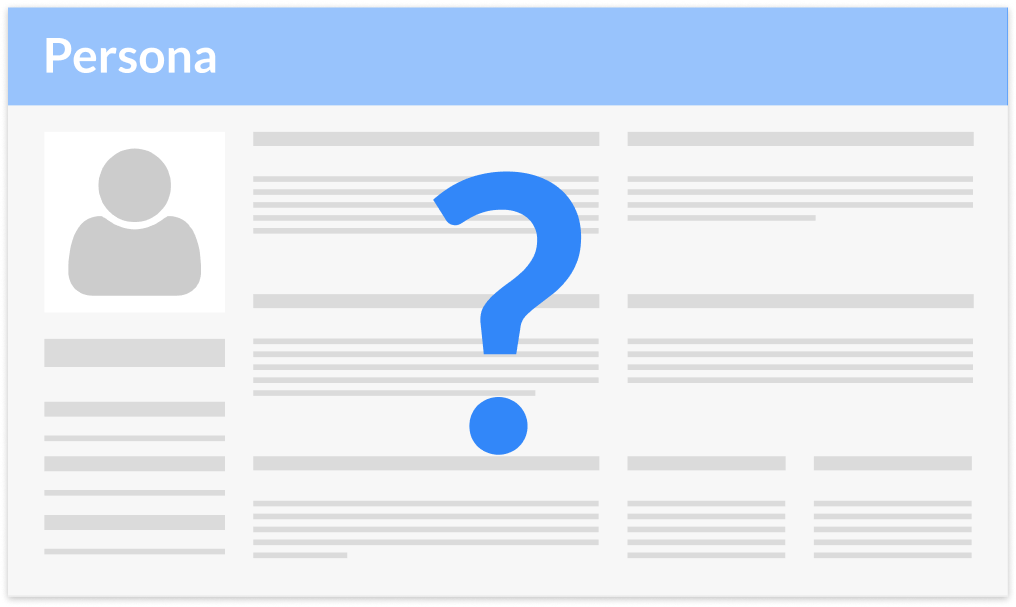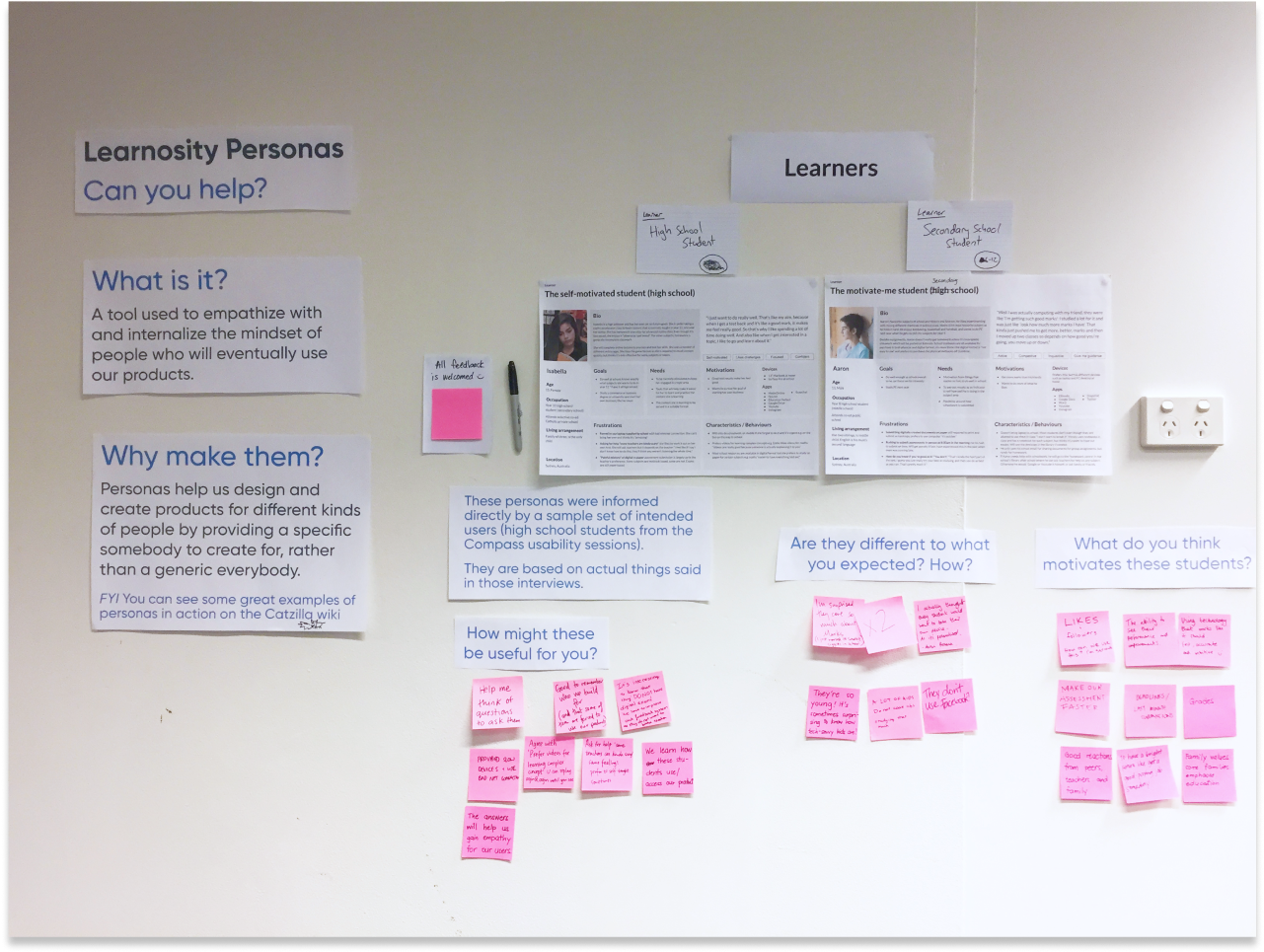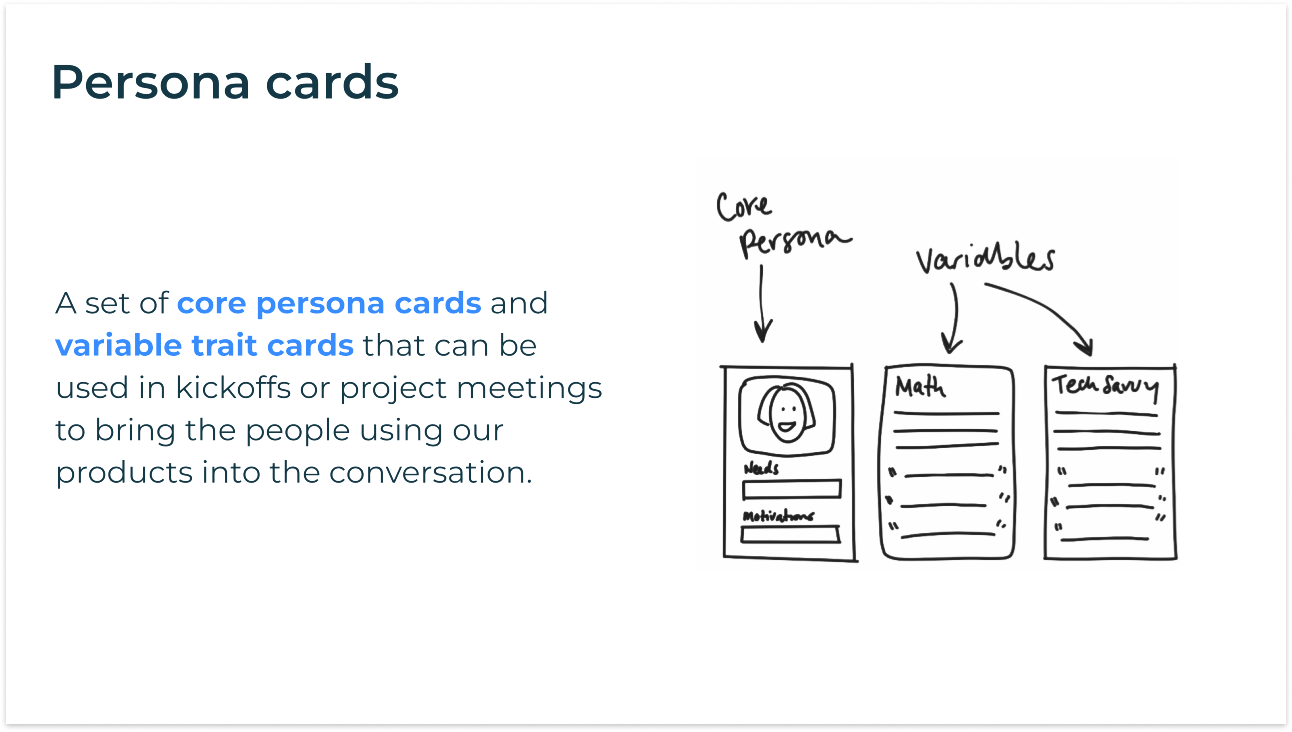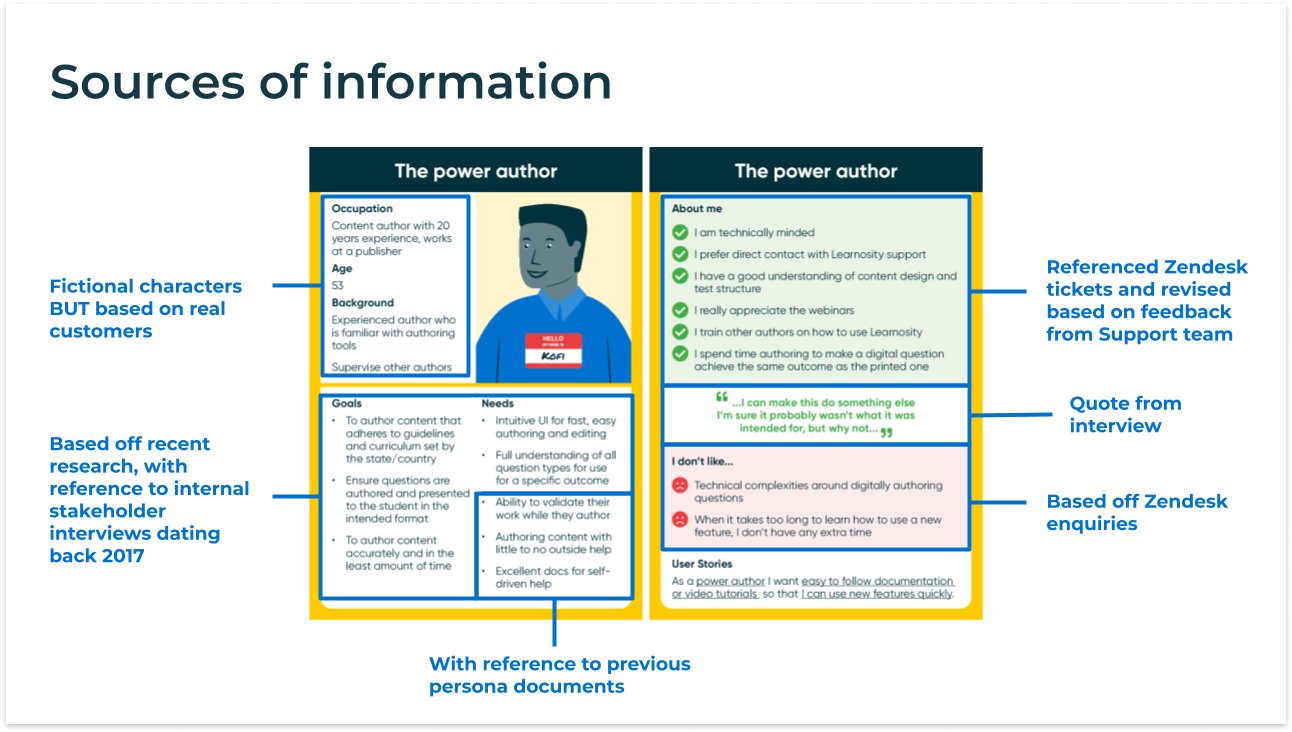Case study
Creating mix-and-match persona cards for unique user groups
Company
Learnosity
Year
2020
Project type
Design initiative, internal project
Co-owner of project, internal interviews, project presentation and recommend next steps
My role
Team
In collaboration with my fellow Product Designer
Building empathy for unique user groups, as well as for the internal teams. Investigating past attempts at creating personas that has not worked as well as intended. Identifying and addressing the problems to solve.
Summary
Building empathy
ContextAs a B2B (business-to-business) company, internal conversations often circle around feeling removed from our users. There has been an ongoing ‘want’ from the business to create personas to promote a user-centric development approach, but past attempts have either lost momentum or did not yield desired results.
It’s important to understand and build empathy for the users of any products or services. In this case, it needed to be from the perspective of the intended users of the personas, the internal teams.
Identifying the problems
DiscoveryWorking together with my fellow Product Designer, we investigated why past attempts may not have been as effective as expected:
Lack of general understanding of what personas are
Uncertainty around the purpose of personas
The perception that personas are ‘made-up characters’ and sees little value
‘Wasted effort’ from past attempts
Lack of ownership - No driver for the project
Problems to solve
DiscoveryIt was clear that these issues needed to be addressed for this project to succeed.
It also became apparent that our unique user groups did not conform to ‘tradition’ personas. Even though the core personas have already been identified from previous efforts, feedback from colleagues revealed that they felt the personas only represented a portion of our users:
Users may be grouped under the same category, but may have different needs and wants depending on other variables.
Gathering internal feedback about earlier versions of personas Project goals
DefinitionClarity around what personas are and what they are intended for
Clear communications around personas being fictional characters based on factual information
Transparency around where the information is sourced
Demonstrate the value of personas as a tool
Encourage more internal conversations around our users and their needs throughout product development
Internal user needs
ResearchResearch was conducted in collaboration with the internal teams. Colleagues across the company were encouraged to participate. We conducted multiple workshops and brainstorming sessions to gather historical knowledge that could be leveraged and built upon for this project.
As co-owners of the project, my fellow Product Designer and I set up kick-off meetings and subsequent updates to report on the progress of the project. Visibility and transparency was key to keep the project at the forefront.
Conceptualising the idea of persona cardsMix-and-match persona cards
OutcomeAfter conducting a number of feedback sessions with different teams across timezones, we decided on the idea of interchangeable persona cards that could be used together or mix-and-matched depending on the variable traits.
Early versions of the persona cards were printed and displayed in high traffic common areas and meeting rooms to raise awareness of the project, to encourage participation and to collect feedback.
Introducing persona cards to internal teamsMeasuring success
OutcomeAfter the introduction of the first phase of persona cards, a survey was sent out to measure the success of the project, to assess the effectiveness of the communications, and to identify areas to improve for the next phases.
This was a rewarding project to see the personas referred to by colleagues during discussions and mentioned in Jira tickets.
Ongoing effort will be required to ensure the personas are reviewed and updated regularly, as a reminder that our users’ needs and wants may vary over time, but they should always be at the centre of everything we do.
A survey was sent out to capture feedback about the projectSee other case studies
Performance review acknowledgement
Interchangeable persona cards







